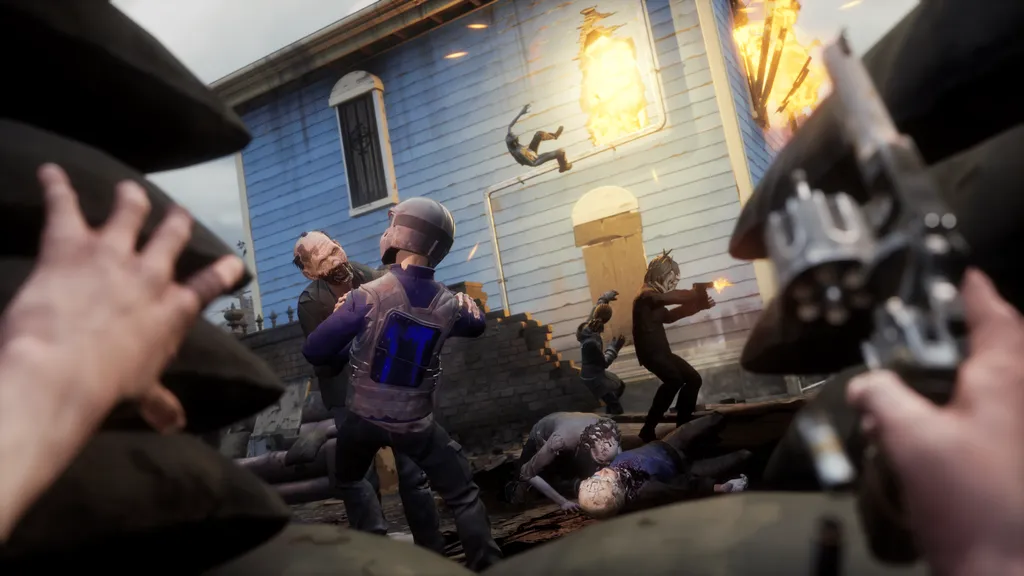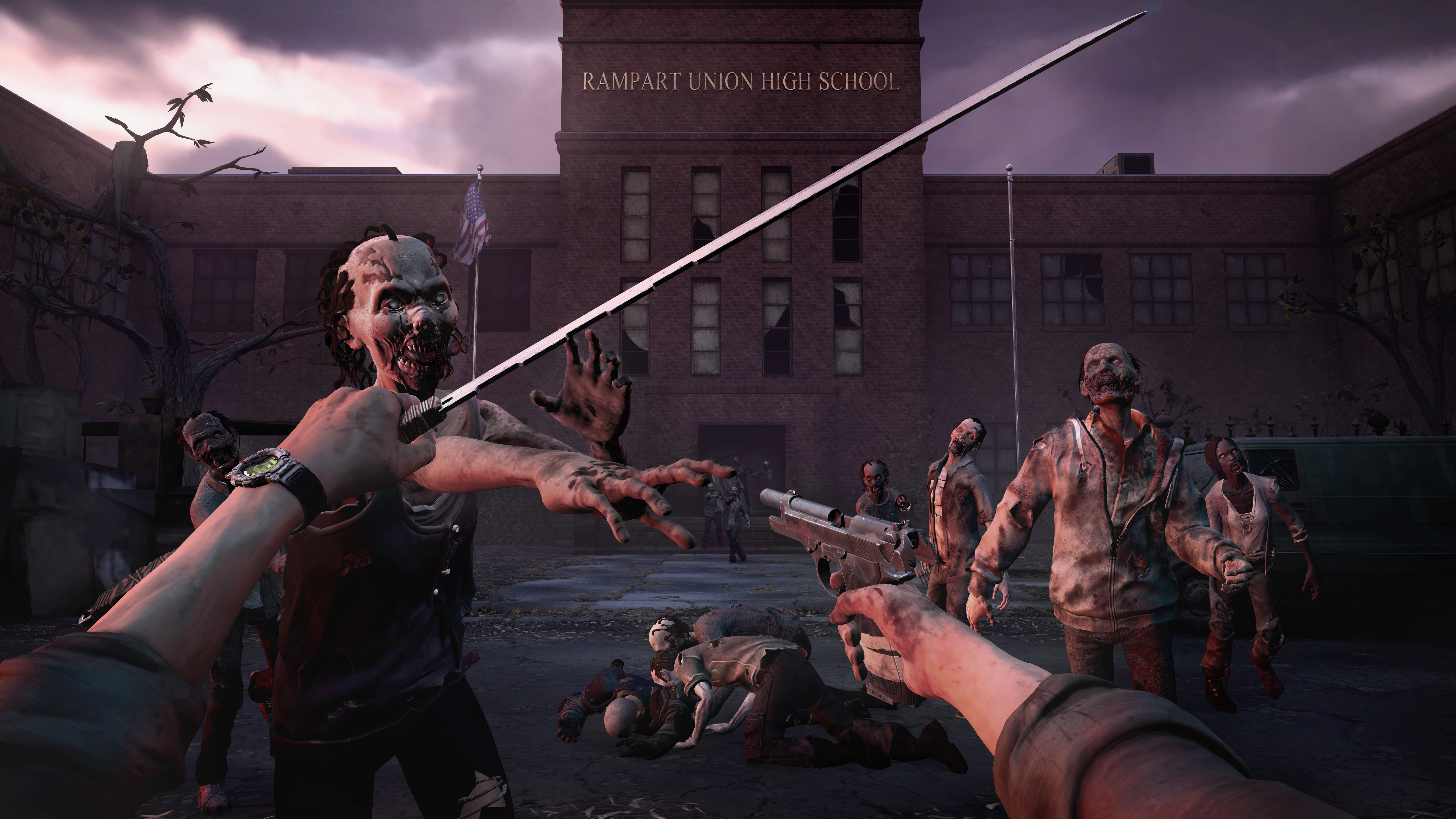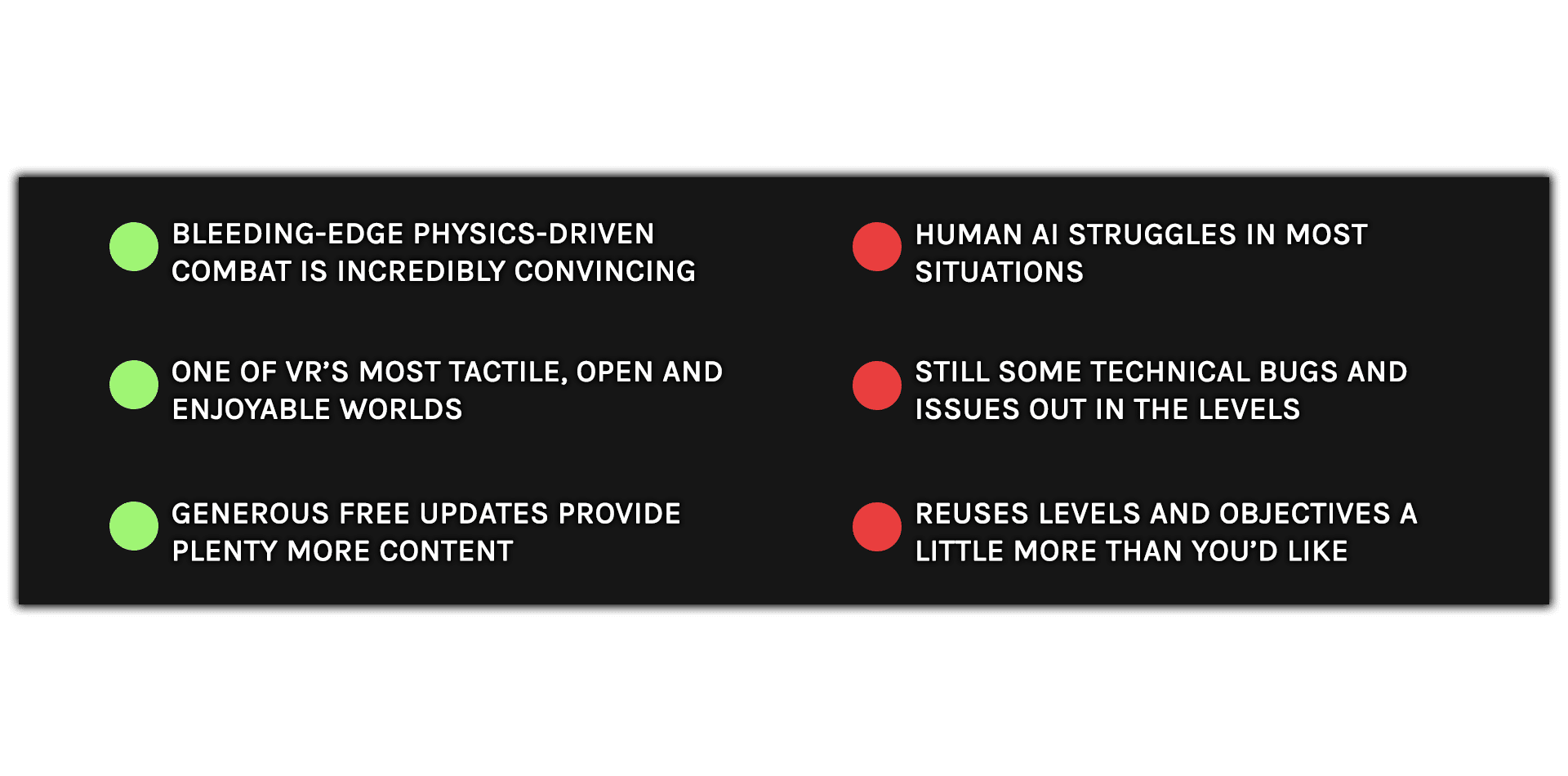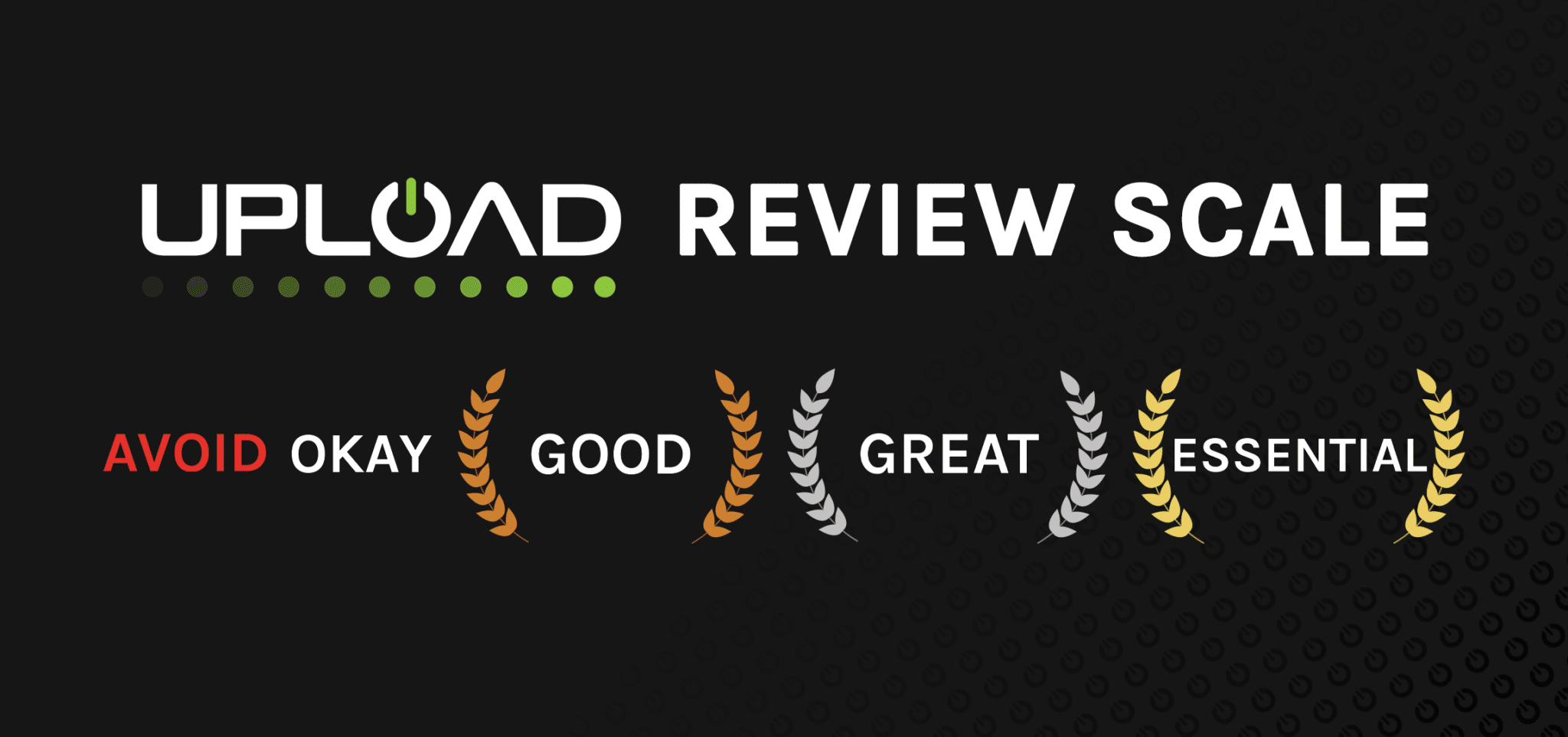With two big updates under its belt, there’s never been a better time to get into The Walking Dead: Saints & Sinners. Read on for our 2021 The Walking Dead: Saints & Sinners review!
Note: This is an updated review based on The Walking Dead: Saints & Sinners after its second free content update, Aftershocks. Our original review was published on January 28, 2020.
Zombies. They’re everywhere. They’re in our movies, TV shows and comic books but, by god, are they in our games. They devour our shooters, chomp at the remains of survival RPGs and even infect our VR experiences. The mere sight of the shuffling hordes of undead software is enough to make one sick. Surely, amongst the sea of rotting brands and stink of decaying creativity, we’ve all at least once proclaimed: “Please, no more zombie games.”
How, amongst this putrid stench, is The Walking Dead: Saints & Sinners still such a breath of fresh air?
Because, even nearly two years on from launch, Skydance’s VR survival game remains exactly that. Your 15+ hour scuffle through the streets of New Orleans, now bolstered by two generous content updates, is as tense and entertaining as ever. Perhaps it’s that lethally on-point melee system, an industry-best blend of convincing physics and sickly smooth head-stabbing. In Saints & Sinners, every thrust of a screwdriver or swing of a pistol butt must be made with intent. It requires a sense of force and direction that, if done correctly, will be met with authentic (and often wince-inducing) impact.
This goes beyond just the array of knives and spiked baseball bats; rather than take potshots from afar it’s often better to grab a walker’s head, wrestle with it to find an open patch behind the armor (if it’s wearing any) and fire a pistol at point-blank range. Healing by wrapping a bandage around your arm, meanwhile, or whacking through boards with the end of the rifle both feel spot on, as does climbing ruins and rifling through the positional UI.
Fine-tuning this must have taken longer than I care to think about, but the work was more than worth it. Saints & Sinners never lets you believe you’re controlling two weightless, magic hands that can pass through walls and objects or decapitate the undead with a lazy flick of the wrist. Its heft gives the game a dynamic intensity; managing a horde of zombies isn’t just about maintaining weapon durability and ammo but also your own physical exertion (though the game does have an annoying if necessary in-game stamina meter) and spatial awareness.
[vc_row][vc_column][vc_cta h2=””] The Walking Dead: Saints & Sinners Review – The Facts
What is it?: A zombie survival RPG with a focus on physical VR combat and player choices.
Platforms: Quest, PC, PSVR
Release Date: Out Now
Price: $39.99[/vc_cta][/vc_column][/vc_row][vc_row][vc_column][vc_column_text]
I’d take a big breath in before seizing a zombie’s head and bringing a brick crashing down on top, or shoving a brainless baddie back to give myself a few seconds to fumble just a few more rounds into my revolver before leaning around the herd to snag a human enemy that’s using the undead to their advantage.
But Saints & Sinner’s gruesome magic punctures deeper than that. It’s also the result of a sprawling system of loyalties and NPC reactions that makes each of its levels genuinely unpredictable. You’re caught in the middle of a turf war for zombie-infested New Orleans with two equally vicious sides: the well-stocked and authoritarian The Tower preach order and enforce it with brutal efficiency, whilst the crazed, primordial Reclaimed strike terror with their animalistic appearance. How you play affects your relationship with each, both in those required moments of morally dubious choice-making and in, well, who you decide to shoot. It’s entirely possible to befriend one side and enjoy easy access to their encampments, but more than likely you’ll straddle a grey area between the two, see-sawing between welcome and feared with every new development.
Though each level’s scope — and as a result the overall game — is somewhat limited, this opens Saints & Sinners up to a rare player agency. At one point a smug gang leader presents a tempting. I can double-cross another side and reap the rewards or return to them and instead out his plans. What he doesn’t count on, though, is me stocking enough ammo to take the fight to his thugs outside, so I pull out a revolver and blast him away. Being given this degree of control isn’t something games are brave enough to do very often, but it’s a truly potent ingredient here.
Somewhere between these clashing systems lies Saints & Sinners’ real hook. It’s the believability in both its world, its actions and your own that really sells you on this brand of apocalypse. Herd of walkers chasing you? Swing past The Tower stronghold and have the guards light them up for you. Need something from a hostile camp? Sneak inside and take down an unsuspecting enemy, then wait for them to zombify and use the distraction to get by unnoticed. The degree of control, mixed with the tactile interaction, really helps root you in its world in a way few other VR games have replicated. It’s tough to overstate just how much fun and revelatory it is to dive into one of the game’s levels and tinker with these mechanics. Perhaps most tellingly, it provides an experience you genuinely couldn’t get in any other medium other than VR.
It also helps that the game’s RPG elements measure up. Crafting is well streamlined, with trinkets you gather out in the world automatically sorted into resources by dropping them in a box back in the hub area. You’ll be able to use them to craft new, more reliable weapons and improve your own attributes. Whichever way you look at it Saints & Sinners measures up to the depth you’d expect from flatscreen survival games, but then goes a step further with VR to deliver a tangible experience you can really believe you’re a part of.
There are elements that hold all of this back, though. The human AI, for one, is not very good. They’re erratic, not because you’re not sure if they like you or not but simply because you don’t know if they’re keeping up with the world around you, ignoring your presence in the heat of battle, or failing to give chase when you escape from sight for a split second. They’re so brain dead they might as well be zombies themselves and, though their lack of intelligence is often pretty funny to behold in that Skyrim/Oblivion sort of way, it’s disappointing that they can’t keep the game’s ruleset cohesive.
And it’s somewhat harmful to the game’s more emotional side, too. Saints & Sinners is filled with troubling moments of branching paths, some of which hit home thanks to the sheer extremities of the choices in front of you. But it’s harder to connect with a cast of characters you only have fleeting interactions with and, although the excellent (and series-accurate) comic art style allows for some expression, it gives the cast an identi-kit vibe, too. There are very few major players in this world, and it’s a shame there isn’t a wider, more diverse cast to interact with and hammer home the largely forgettable story.
It’s also true that, even at its very respectable 15+ hour length, the game’s main campaign leaves you wanting more. This being a survival RPG, you’re only getting properly stocked towards the end, and when the credits roll you’ll be left wanting to spend more time with the game’s best weapons and gear to handle its biggest threats.
Fortunately, thanks to the two main free updates, that’s now possible.
Both Meatgrinder and Aftershocks do a lot with Saints & Sinner’s existing assets to flesh out the experience in key ways. The former not only includes the now-standard issue wave-based survival mode but also a chance to rack up points with more stylish and varied zombie kills, getting you to properly embrace the game’s breadth of weaponry. Aftershocks, meanwhile, finally gives Saints & Sinners the endgame content it needed, with another 4+ hours of missions that have you traveling back to retooled maps to search for valuable loot drops which, in turn, help you cement your arsenal.
Together these updates make Saints & Sinners a more rounded, complete package. Aftershocks helps extend the RPG side of the experience into something more rewarding, whereas Meatgrinder gives you a quick and easy path to jump into the combat.
The Walking Dead: Saints & Sinners Review – Final Impressions
With the free Meatgrinder and Aftershocks updates in tow, The Walking Dead: Saints & Sinners goes from strength to strength. It’s an explosive mix of industry-leading physics and interaction delivering visceral, tactile melee combat that never tires and a dynamic set of systems that fill each of its contained sandboxes with a constant stream of unpredictable surprises and a refreshing focus on player agency. It’s a zombie apocalypse within your grasp – a living, breathing virtual ruin with player-driven highs that easily outshine its experimental lows. In a sea of stale undead clones, The Walking Dead: Saints & Sinners is a cut above.
For more on how we arrived at this rating, read our review guidelines. What did you make of our 2021 The Walking Dead: Saints & Sinners review? Let us know in the comments below!






























